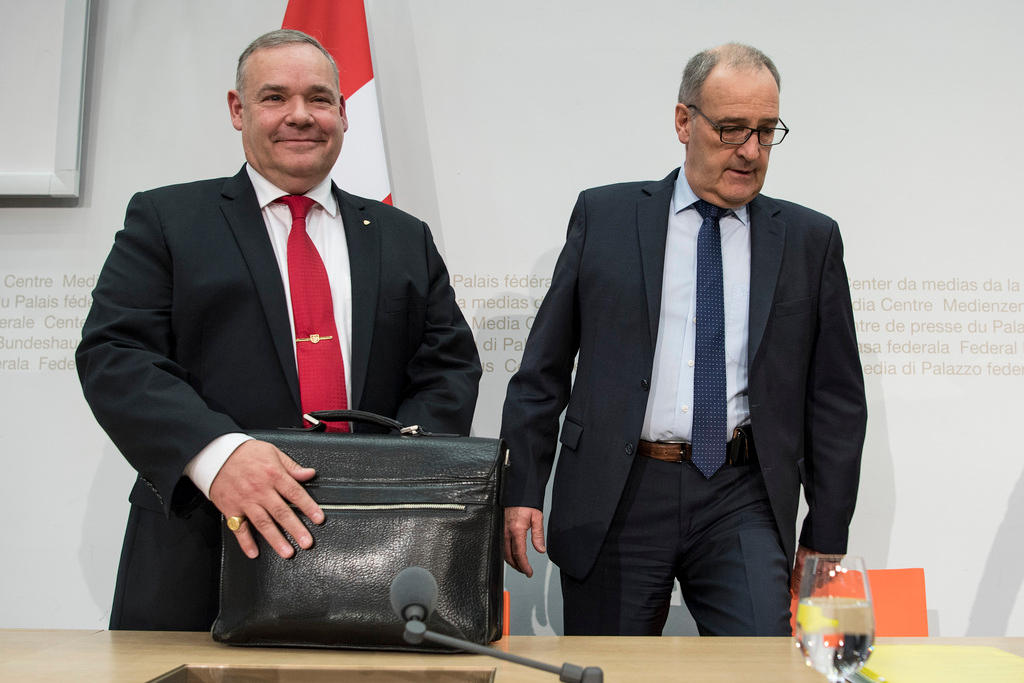
Swiss intelligence service to be led by senior military

The government has named Jean-Philippe Gaudin as new head of the Swiss intelligence service.
The 55-year-old Gaudin has had a long career as member of the armed forces, notably as an instructor, and led the military intelligence unit between 2008 and 2016, after which he became military attaché with the Swiss embassy in France.
At a news conference on Wednesday, Defence Minister Guy Parmelin commended Gaudin for his professional experience both in Switzerland and abroad as well as for his network of international contacts.
Gaudin, who will officially take over his new post in July, described Islamic terrorism as the main threat faced by Switzerland and other European countries.
He declined to comment on a report by a parliamentary control committee strongly criticising the intelligence service for mishandling spy activities in Germany and a massive data theft over the past few years.
Tasks and powers
But Gaudin said he would try to improve public knowledge about the tasks of the service, adding that current staff levels were adequate.
“The Federal Intelligence Service has everything it needs. But it must be able to develop and adapt to future challenges,” he said.
Voters in 2016 approved a legal amendment extending the powers of the intelligence service allowing phone lines to be tapped and cyberspace activities to be monitored.
Gaudin replaces Markus Seiler who took over a senior position in the foreign ministry last year.

In compliance with the JTI standards
More: SWI swissinfo.ch certified by the Journalism Trust Initiative






























You can find an overview of ongoing debates with our journalists here . Please join us!
If you want to start a conversation about a topic raised in this article or want to report factual errors, email us at english@swissinfo.ch.